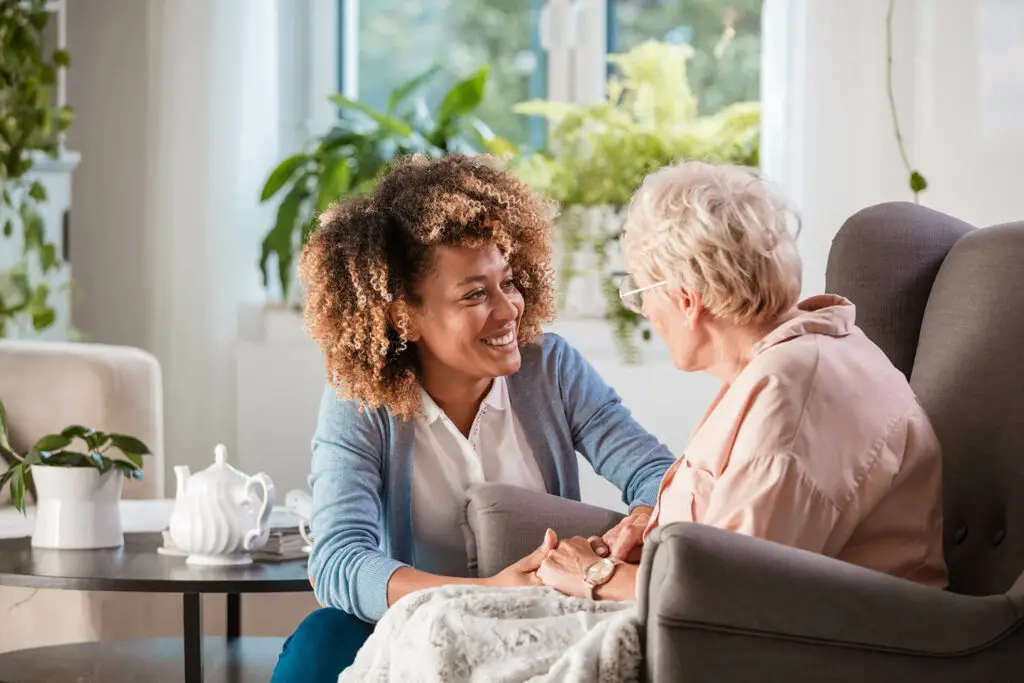Because people live longer in our culture, more people will require assistance as they age. Because they supply this assistance, caregivers are crucial. As the number of people needing individualized care boosts, it's necessary to understand live-in care choices and the crucial function of personal care assistants (PCAs). With live-in care services, a caregiver provides ongoing help and supervision for the person in need by living with them full-time. Personal care assistants (PCAs) are qualified experts who assist with daily chores. It contains dressing, bathing, taking medicine, and getting around. To prevent the person from feeling alone, they also provide companionship.
Advantages of live-in care services:
- Personalized care: Because live-in care services provide a one-on-one care setting, the care recipient will get customized attention based on their unique requirements.
- Continuity and consistency: Having a dedicated caretaker encourages the growth of mutual affection and belief, all of which are necessary for quality care.
- Families' peace of mind: Knowing that their loved one is being lovingly looked after and is never alone frequently brings families peace of mind.
- Friendly environment: Keeping care recipients in their homes can improve their ease and well-being.
The rise of live-in care services:
Live In Care Service have become more popular because many individuals require constant assistance, particularly as they age or have health issues. When someone needs live-in care, a caregiver moves into their home to offer ongoing assistance. People who get this care can remain in their homes, feeling safe and at ease. The caregiver assists with daily duties. To prevent loneliness, they also offer companionship. The best thing about these services is that they deliver individualized care tailored to each person's needs. Families find stability and peace in knowing their loved ones are taken care of day and night.
The role of personal care assistants (PCAs):
Personal care assistants, or pca, are crucial to support people who need additional help with day-to-day tasks. They assist with activities such as dressing, bathing, and taking medicines. PCAs help with fair housekeeping tasks like cooking, cleaning, and moving about the house. They ensure that the person doesn't feel alone by offering company. PCAs are qualified to manage a person's medical requirements and may monitor their status, reporting any changes to the patient's family or physician. Individuals can live more comfortably and safely in their homes through their labor.
Tasks of personal care assistants:
- Assistance with grooming, dressing, and bathing.
- Aid in getting around the house and walking.
- Ensure that prescriptions are taken accurately and on schedule.
- When necessary, assist with meal preparation and feeding.
- Perform simple household chores like laundry and cleaning.
- Offer company and participate in dialogues.
- Help in using the restroom and keeping one's hygiene.
- Assistance with errand running and shopping.
- Observe your health and let your family and doctor know if anything changes.
- Offer assistance through physical therapy exercises and regimens.
Interviewing caregivers:
One crucial step is to interview possible Caregivers Glastonbury Ct. Make a list of inquiries to learn more about their background, abilities, and style of providing care. Possible inquiries are:
- How has your experience been with in-home care?
- In what way do you handle emergencies?
- Can you provide references from previous clients?
- How do you protect yourself from burnout by keeping a work-life balance?
Trial period:
Setting up a trial period to evaluate if the care receiver and the caregiver get along is a brilliant idea. You may see how the caregiver attends to the requirements of the individual in need of care throughout this period and manages everyday duties. It enables you to assess the caregiver's suitability for the home and ability to perform the job effectively. During this trial time, the caregiver can also acclimate to the house and routines. If there is comfort between them, it might be decided by the caregiver and the family. In this manner, you can be sure that the caregiver is the best person to offer assistance and care.
Mental health support:
Giving care may be quite emotionally taxing. Because caregivers work so hard to serve others, caregivers frequently experience stress and exhaustion. Giving them mental health support is crucial to assisting them in coping. Caregivers can discuss their thoughts and seek stress management tips through counseling services. Support groups are also beneficial since they provide caregivers with a platform to connect with like-minded people. They may exchange advice and experiences in these groups, which might help them feel less isolated. Support groups and therapy can assist caregivers in maintaining their health and high standards of care.
The future of live-in care services:
Live-in care services have a bright and hopeful future. As individuals age, there will be an increasing number of people who will require live-in care. Technology will significantly impact, including new health and safety monitoring tools. Caregivers' work will be made more accessible, and better care may be provided with the aid of these instruments. Caregivers will receive better training, enabling them to manage various scenarios. Because live-in care enables loved ones to remain in their homes, more families will opt for it. In general, live-in care services will keep developing and improving, assisting many individuals in leading secure and comfortable lives at home.





